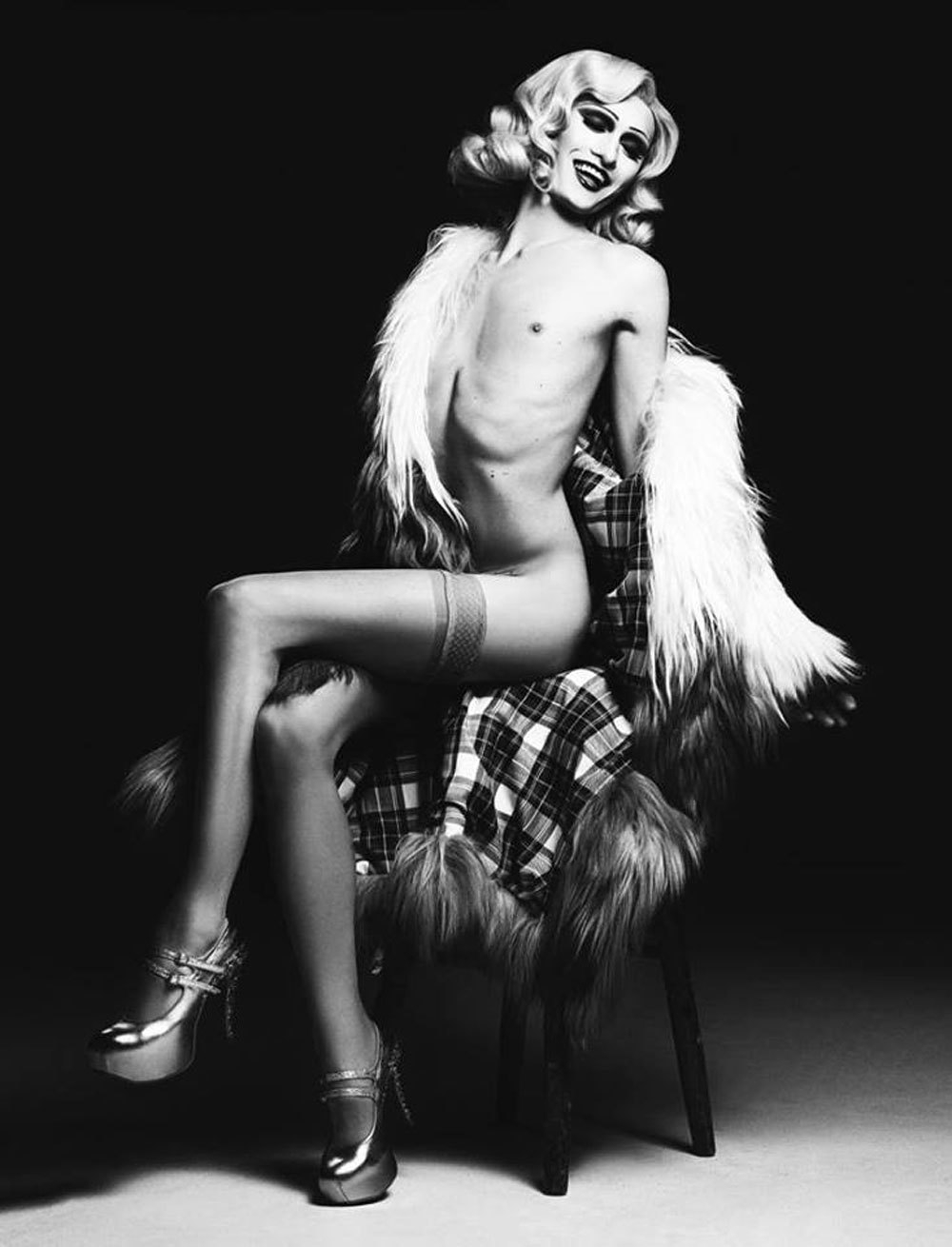Thick skin is a prerequisite for any performer. Yet, it was difficult to shirk the utter dread of waking up after a drag show (which I thought had gone brilliantly, I might add) to find the tweet: “Your drag is shit. I hate it.”
What a blow. What a vague, yet oddly cutting blow. It was easy to brush off this one tweet in its keyboard warrior anonymity, but what stuck with me a lot longer was the follow up. The individual sent me a long email, at first apologizing for their rudeness, but then, quite intensely, outlining all of the ways in which my drag was offensive. I showed the email to my friends, and we laughed it off and massaged my ego, but the words really resonated with me.
Drag certainly has the ability to assault and insult: it can easily become sexist, transphobic, and racist. As a drag burlesque performer, my shows typically end in some sort of full frontal nudity, and my critic, perhaps entirely rightly, understood this to be lauding the objectification and sexualization of women. After all, it is perhaps telling that as an anatomical male, I choose to perform an overtly sexual routine. Do my performative choices suggest that “femininity” is founded on sexualization? I’d argue strongly against that, and I could bring in lofty academic theory of “subverting the male gaze” as a critique of that very notion, but who I am to speak to this? In a phallocentric society, the privilege afforded me as an anatomical and gender-assigned male allows me space to perform as a woman. Perhaps my choice to perform in drag in an overtly sexual manner does more to bolster misogyny than critique it?
These realizations were bleak. But then I thought: “You identify as gender fluid! Your body is your own, you aren’t a cisgendered male and you shouldn’t feel ashamed for what empowers your sense of self.” When I’m in drag, I exploit all the female gender tropes I can, in an attempt to appear more “feminine”. And, in many ways that is incredibly empowering — it shows that the gender signifiers we associate with men and women work only on the surface of the body, and that their ontological status is socially constructed (thank you, Judith Butler).
The line between drag and trans is incredibly definite and vaguely mellifluous. Trans women are not drag queens, and it is unspeakably offensive to make that connection. But I identify as gender fluid, and one of the key ways I express that is through drag. In and of itself, that’s fine. But does drag equate being trans with wearing a performative costume, thus negating the emotional and psychological facets of trans identity, whilst at the same time saying that in being trans one has to adhere to society’s strict dictums on what it is to be “feminine”?
And then came the email’s coup de grâce — is drag racist? Putting aside the ignorant costume choices of anybody who thinks it’s acceptable to offensively culturally appropriate, or worse go out in blackface, drag has come under fire recently for its appropriation of black female culture, vogueing being the most obvious example. However, more recently, the UK Students’ Union has passed a policy banning white gay men, who benefit from a double privilege of being white and male, from appropriating “the mannerisms, language (particularly AAVE or African American Vernacular English) and phrases that can be attributed to black women.” Again, one can counter the policy with endless postcolonial theory and start quoting Edward Said’s theories of shared experience and the similarities of social and legislative oppressions faced by both black and gay people; but when one gets down to it they are just that — similarities — and white gay men have little right to argue against any offense someone might take.
So sexist, transphobic, and racist? I’m sure there’s a case for internalized homophobia somewhere in there as well. I voiced all of these concerns to Lisa Power at Is Drag Feminist?, a debate on which we were both panelists at Soho House.I explained and suggested that the intent of the performer doesn’t really matter if the reception from the audience is to take offense. Yet Lisa disagreed: intention is incredibly important because intention not to harm shows awareness. If one has considered their performative choices through a personal, social and theoretical lens to the extent that they have found themselves justifiable, then perhaps that’s enough. “Enough” in the sense that a dialogue is now open.
Crucially, good intentions will never excuse cardinal and irrefutable offenses, no matter how well-meaning the aggressor may be. However, many of the issues I’ve discussed live in a subjective grey area and thinking, performing and talking about these issues through a non-judgmental dialogue is the best way to move forward.
Credits
Text Jacob Bird
